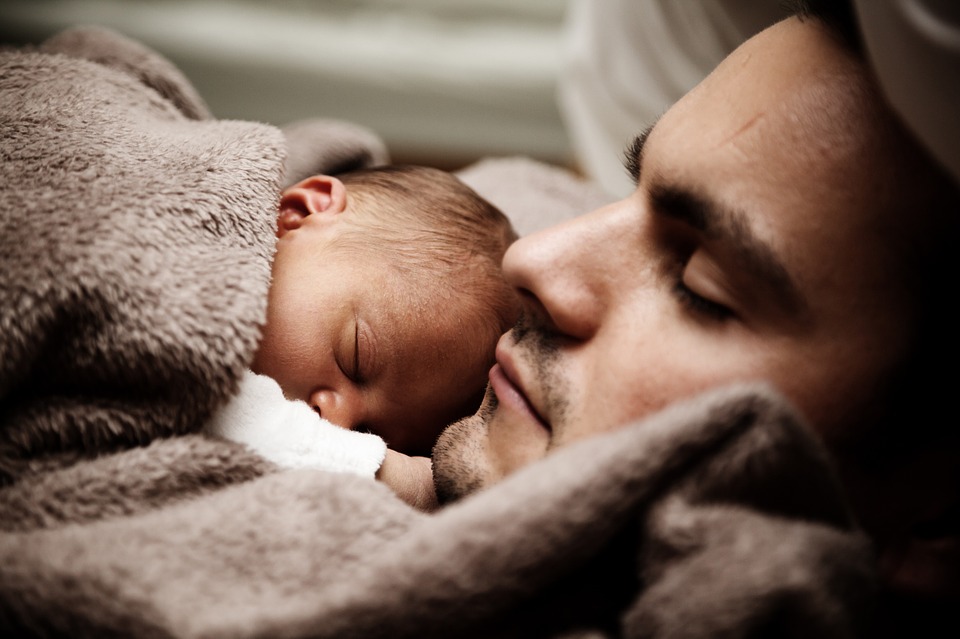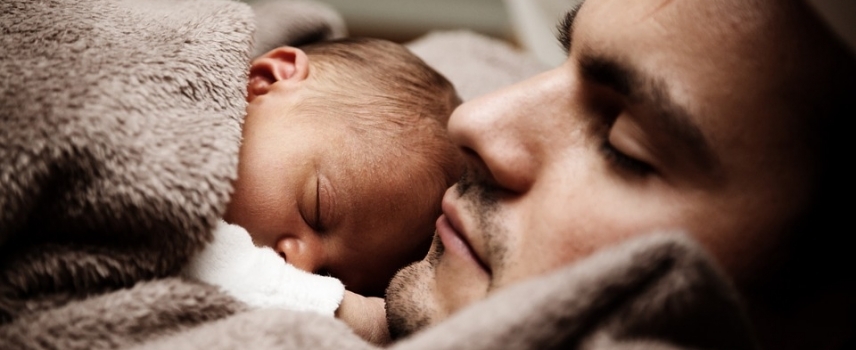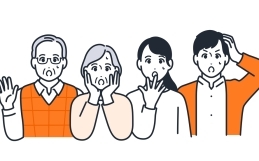
“When I was young I wanted to be single. When I was single I wanted to be married. When I was married I wanted to have kids. And now…I just want to drink.”
-Unknown
Are We There Yet?
It seems like these days, so many people are reproducing. I mean, there are kids everywhere; even I have one. Admittedly, this is something I always wanted since I was a little girl changing my baby dolls’ diapers, feeding them, and putting them to bed. It was so easy playing “mommy” to a doll. But as any parent knows, real parenting is no easy task. I suspect that anyone who disagrees probably has lots of nannies or the patience of Mother Theresa. So knowing that being a parent is the hardest job on the planet, why do we continue to reproduce? We work so hard in early adulthood to create our own identities and build our lives and selves. We grow into who we hope to be and go on to have children, only to be told that parents are supposed to lose themselves and give their all to another. As a mother to a healthy and energetic toddler, I have to wonder, “Is there a way to be a parent without losing ourselves?” and “Are we there yet as a culture to even consider that as a possibility?”
What Real Parents Think
“Parenting is the easiest thing in the world to have an opinion about, but the hardest thing in the world to do.”
–Matt Walsh
When I first started considering writing an article on self-full parenting, I took a poll in order to assess what some other parents think. I asked some local parents to quickly sum up parenting by telling me the words that come to mind when they think about what it means to be a parent. Here are the words that rapidly came to the minds of the parents I polled: “Brutal,” “Exhausting,” “Patience,” “Amazing,” “Unrequited,” “Unconditional Love,” “Terrifying,” “Insane,” “Emotional,” “Powerful,” “Chaos,” “Rewarding,” “Scary,” “Thrilling,” “Life Changing,” and “Infinite.” Wow. Based on those descriptions alone, I think it’s absolutely unbelievable that people ever have more than one kid. It makes me feel as if the people who choose to be parents must be thrill seekers or masochists.
But then you hear descriptions of parenting like the one I heard from one of the people I polled, a mother of two children: “Hardest but most rewarding job ever. The ultimate mental challenge.” Then there are the words of another parent, who shared: “It never ends my love, concerns, and worries. I have so many hopes and I feel I can never do enough. I can’t take a moment for granted. Lots and lots of work. The joy is filling, and without them I feel empty. My freedom is so precious, but I also can’t get enough time.”
Reading the words of these individuals allows me to see what a paradox parenting is. Though their descriptions of parenting seem, on the surface, to be illogical, my experiences as a parent help me see how they also make so much sense. Parenting is an amazing experience and a brutal one at the very same time. Where else in life can you find that kind of crazy adventure?
It’s often said that there’s no book or manual for learning to be a parent. Well, I have personally read plenty of books on parenting, child development, and children’s health. There are tons of books like this on the shelves and no shortage of parenting-related information available. It’s easy to obtain information about how to raise kids who don’t turn out to be assholes. So considering all the information that’s out there, I think the real meaning behind the statement that there’s no book or manual for parenting is that there really isn’t anything that can fully prepare you for it. Maybe it’s better that we jump in to it blindly; otherwise, the human race would die out. So with everything the beautifully disastrous whirlwind of being a parent makes of your once predictable life, how do you stay grounded in who you are while being a good parent at the same time?
How To Parent Without Losing Yourself
1. Be Self-Full: Enough with the idea that you need to be selfless to be a good parent. What selfless parenting often does is result in kids who think the world revolves around them. As mommy blogger Kristen Mae states, “We see kids who won’t lift a finger to help out, who think the world revolves around them, who rarely show gratitude and empathy and who demand more…more…more!” Our culture pushes parents to give all of themselves. I was told many times when I was pregnant, “You have to be selfless as a parent.” I no longer believe that to be true. I think that, like anything else in life, balance is key when working towards being a good parent. You don’t want to be a selfish parent and totally neglect your child’s needs; but you don’t want to neglect yourself completely either. Self-full parents make their needs a priority but keep their children’s needs high on the list as well. When I ensure that my needs are met, I am much better at making sure my child is well taken care of. Think of the demonstration you get when you go on an airplane: During an emergency, you need to put your mask on first before helping put on another’s mask. Take care of yourself, and be clear about your priorities, values, and worth as an individual. It will help you be a better parent with well-defined boundaries.
2. Be Present: Parents are so scared of looking like a “helicopter” parent that they’ll let their kid act like a jerk without intervening. I don’t promote being on top of your child’s every move; but when it comes to more complicated issues like generosity, bullying and physical violence, I think parents need to be more present. By being present, when you’re with your child, you’ll rest easier later when they aren’t in your care. Step in when your child has hurt another kid. Show them how to apologize and be accountable for their actions. Be present when they behave well and promote those behaviors, but also explain to them the results of behaving badly. Show them how to behave well you’ll end up with more time for yourself instead of in the principal’s office.
3. Be a Good Role Model: We can do a lot for our kids by modeling kindness and respect; they’re always watching. It’s important to show them how to act with empathy, love, and respect, because it does not come naturally to every child. By respecting people, being polite, and respecting your needs and boundaries, you’re allowing your child or children to see that they can live that way too. Act in ways that are true to your values, and make sure your behaviors match who you want to be and who you want your child to become.
4. Don’t Be The “Keep Them Happy at All Costs” Parent: When we live only to provide our kids happiness and spare them disappointment, we teach them that their contentment is our only priority. This can lead kids to become entitled and think, “What’s in it for me?” when they’re asked to behave well. Furthermore, when they face life’s inevitable disappointments—like not getting a good grade—they’ll have a hard time managing their emotions. Make your life less stressful by allowing your kids to experience all of life—even the bad stuff. Then, help your kids develop some strategies for overcoming life’s inevitable difficulties.
5. Make Time For Your Kids: Give your children your love and attention when you’re spending quality time with them. A fun activity is to simply spend at least 10 minutes a day individually with each child, on their terms, doing whatever they want to do during that time. Commit to it on a daily basis, and you can watch “bratty” behaviors slowly go away. Your children will stop trying to get your attention in negative ways when they know they’ll get it in positive ways. This will give you the quality time you enjoy with your children and some time to yourself, too.
6. Make Time For Yourself: If you’re anything like me you hate asking for help. When I became I parent, I realized this is something I’d have to learn to do if I didn’t want to risk losing myself. If you can’t afford the extra help of a baby sitter or nanny, ask family members or friends for help. This will allow you to go for that massage you wanted or enjoy a dinner date with your partner, your friends, or yourself. It’s important that you continue to do the things you enjoy. This will allow you to maintain a strong sense of self, which will help you stay refreshed and energized while you take care of your children’s’ needs.
Like anything in life, parenting requires balance—one between selflessness and selfishness. Being a parent is hard work; there’s no argument against that. But there are ways to make it a bit easier on yourself that don’t involve just doing whatever’s easiest in the moment. It’s all about making the harder decisions now and doing things along the way that will make your life easier later.
Becoming a parent doesn’t have to mean losing who you are; in fact, parenting offers countless opportunities to find new ways to be you. Once I had my daughter, I learned how to ask for help, how important it is to have alone time, how to function without sleep, how strong I actually am, and how to better manage my time. For me, parenting is an experience that helps me learn more about who I am and what type of mother, role model, and person I want to be for her and for me. Ironically, becoming a mother allowed me to be more productive and solidified the importance of acting according to my authentic self. I hold myself more accountable for the decisions I make, because I know she’s watching. As the saying goes, “Children learn more from what you are than what you teach.” If you’re a parent, remember that you don’t have to be selfless. Be who you are you according to your values; they’ll respect you more for it.
Talk soon,
Dr. Ilene
Article edited by Dr. Denise Fournier





